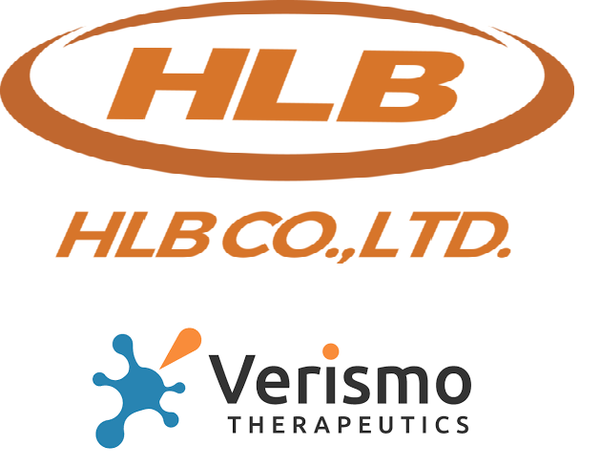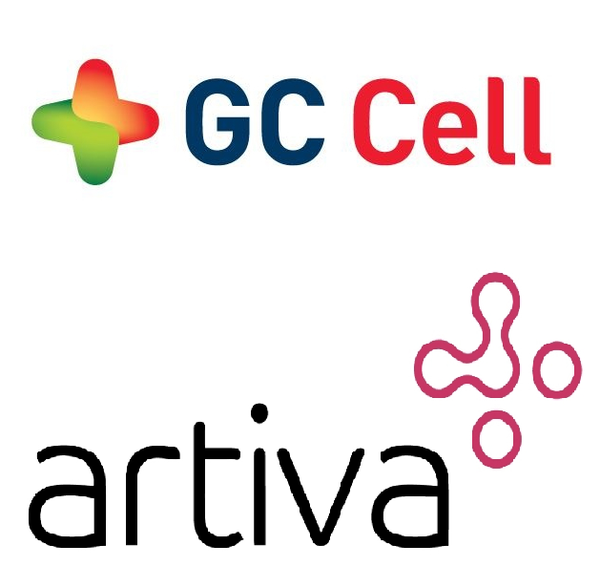HLB’s U.S. affiliate, Verismo Therapeutics and GC Cell’s U.S. affiliate, Artiva Biotherapeutics announced this week that they obtained phase 1 IND approval from the FDA for their respective next-generation chimeric antigen receptor (CAR-T) treatments.

Accordingly, Verismo will evaluate the safety, resistance, and preliminary efficacy of SynKIR-110, the first treatment made with the KIR-CAR platform technology, for three indications including mesothelin-expressing ovarian cancer, mesothelioma, and bile duct cancer.
The KIR-CAR platform developed by Verismo is a novel CAR-T technology expressing a multi-chain receptor similar to the receptor structure of natural killer (NK) immune T cells, which is effective for both blood cancers and various solid tumors.
Pre-clinical trials conducted by a team of Novartis on Kymriah, the world's first globally approved CAR-T treatment, confirmed the efficacy of the SynKIR-110 drug against solid cancer in mouse models.
"The KIR-CAR platform enhances the immune effect in the microenvironment of solid tumors through a switch function which allows T cells to rest when they are not binding to tumors, reducing ‘T cell exhaustion' while increasing cell surface stability," said Verismo CEO Brian Kim.
Meanwhile, Artiva’s AB-201 is an allogeneic HER2-targeted chimeric antigen receptor NK (CAR-NK) cell therapy for the treatment of solid tumors in the outpatient setting with the option for repeat dosing.

AB-201 is a novel, high-affinity anti-HER2 antibody conferring highly specific tumor targeting and is coupled with its unique co-stimulatory structure and IL-15 expression for enhanced activity and persistence.
The underlying NK cell is derived from umbilical cord blood donors preselected for its high-affinity variant of the CD16 receptor and a KIR-B haplotype. AB-201 cell products maintain high expression of CD16, while activating innate cell tumor engaging receptors for dual targeting therapeutic approaches via monoclonal antibody combinations.
The resulting CAR-NK is manufactured at a very large scale and cryopreserved in infusion-ready media to enable repeat clinical administrations in the outpatient setting.
“AB-201 is the first systemically administered, CAR-NK cell therapy candidate targeting the most prevalent HER2-positive cancer indications, including breast and gastric carcinomas,” said Artiva’s CEO Fred Aslan.
HER2-positive cancer patients usually experience a relapse or progression of their disease, and once HER2-directed therapies have been exhausted, patients only receive modest benefits from cytotoxic chemotherapy.
The absence of safe and effective treatments for patients who have exhausted HER2-directed options represents an important unmet medical need, said the company.
Verismo’s patient enrollment is scheduled to begin at the University of Pennsylvania Hospital in Q1 2023. Likewise, Artiva also plans to conduct a clinical study of AB-201 in HER2-expressing cancer patients at multiple U.S. clinical sites in Q1 next year.
Earlier this month, state-of-the-art CAR-T cell therapies were also presented by Professors Catherine Bollard and David Miklos at the ICBMT 2022 hosted at BEXCO Busan. At this event, Professor Bollard stressed the need for better CAR-T therapies targeting CD-19, B-cell and non-B-cells, combination therapies for antigen-specific T cells, and genetic engineered natural killer (NK) cell therapies. Meanwhile, Professor Miklos explained a new technology called “Quantibrite” that could quantify the number of CD-19 antigens during pre-treatment to quickly identify patients at risk for treatment failure.
At the conference, Professor Kim Seok-Jin of Samsung Medical Center (SMC) also shared about the first dedicated CAR-T manufacturing facility in Korea for clinical studies which was established in 2019. Consequently, there are high expectations also for domestic clinical trials of CD-19 CAR-T cells with Asan Medical Hospital and Abclon and another with SNUH and Ticaros Therapeutics.

